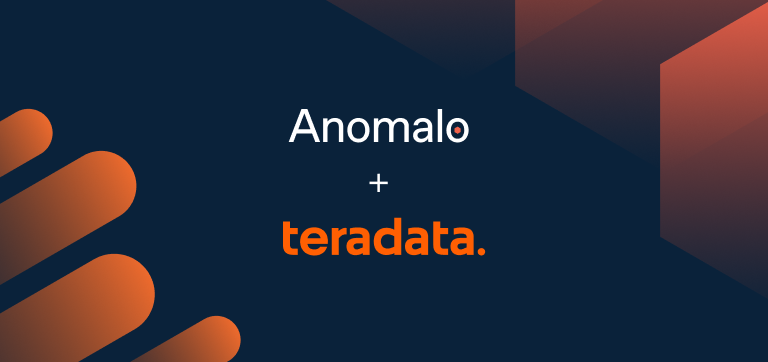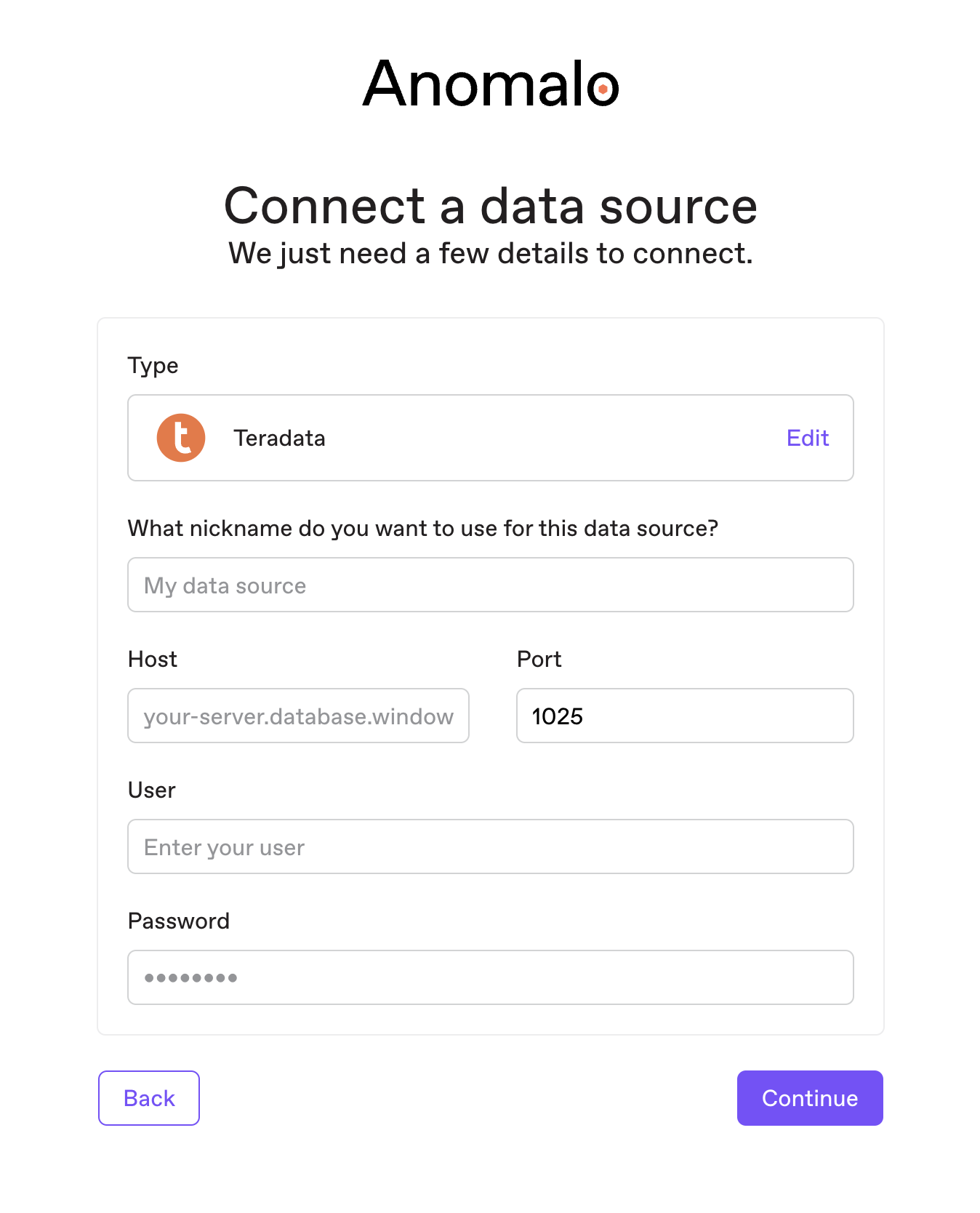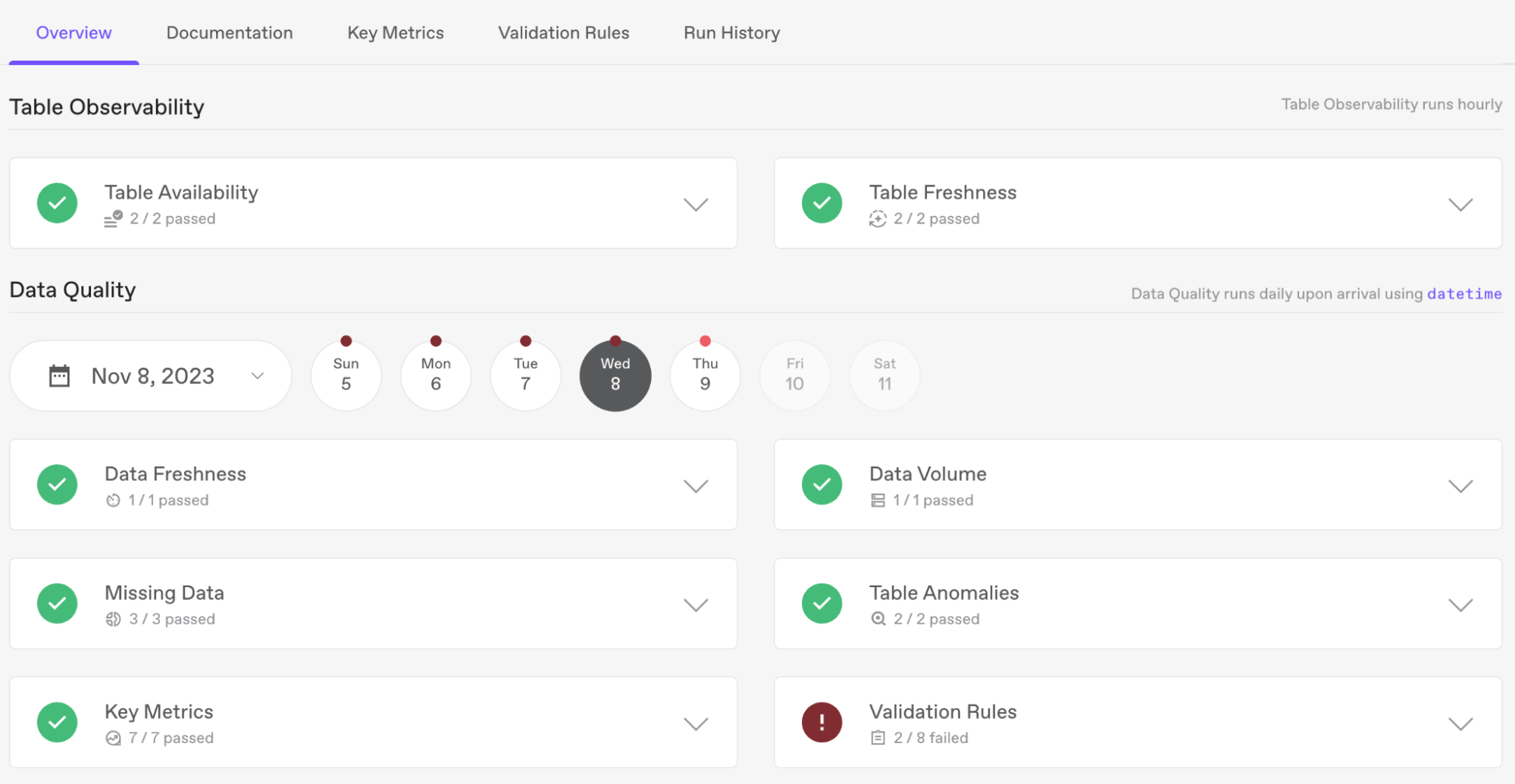Anomalo Now Supports Teradata
November 3, 2023

Many enterprises, including global commercial banks, airlines, and insurance companies, use Teradata for hybrid and multi-cloud data warehousing. As part of our promise to provide interoperable solutions that work with your data wherever it is stored, Anomalo now supports Teradata.
Data stored in Teradata can now be comprehensively monitored by Anomalo’s automated machine learning algorithms and low-code checks, just like any other data source we support.
How to connect Teradata to Anomalo
When you connect your data sources to Anomalo’s data quality monitoring platform, Teradata will now appear as an option. Just supply a few details, and you’ll be connected to Teradata in one click.

Setting up data quality monitoring
Once you’ve connected Teradata to Anomalo, you can configure your tables for monitoring by following the configuration wizard in the UI. Our customer support team is here to help if you have any questions.
Anomalo provides comprehensive data quality monitoring checks that will run automatically on a set schedule. In addition, you can ask Anomalo to track key metrics and continuously check data against validation rules, all without writing any code.

Data Quality
Anomalo’s Data Quality checks deeply monitor the quality of your individual data values.
This is especially important for your business-critical data.
We use machine learning to automatically find issues in your data, including problems that you wouldn’t have known to check for, which is much more scalable than writing rules for every condition.
- Data Freshness checks whether there are unexpected delays in updating or creating rows in the table.
- Data Volume checks whether the table received as much volume in the last update as expected.
- Missing Data looks for increases in NULL values, drops in segment records, or increases in zero values.
- Table Anomalies learns what data in your table usually looks like and applies unsupervised machine learning to search for unusual changes in your data.
Key Metrics and Validation Rules
You can configure additional custom checks with no-code or low-code options in Anomalo’s UI.
- Key Metrics let you define business performance indicators, and Anomalo will notify you if your KPIs trend outside of a historically normal range.
- Validation Rules allow you to specify strict constraints to which your data must conform (e.g., column X must never contain “NULL”).
Try Anomalo
With the addition of Teradata, Anomalo now supports 12 different data sources, including Snowflake, Databricks, and BigQuery. Anomalo’s integrations and ease of deployment mean an enterprise can get set up fast and prevent data quality issues before they affect downstream dashboards, ML models, or customers.
Want to see why Fortune 500 businesses trust Anomalo for data quality? Schedule a demo today.
Categories
- Integrations
Get Started
Meet with our expert team and learn how Anomalo can help you achieve high data quality with less effort.


